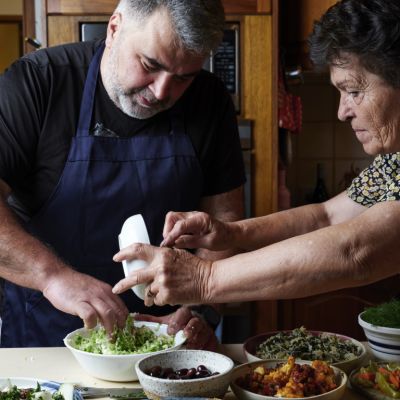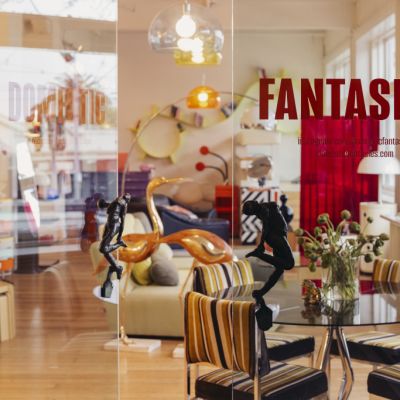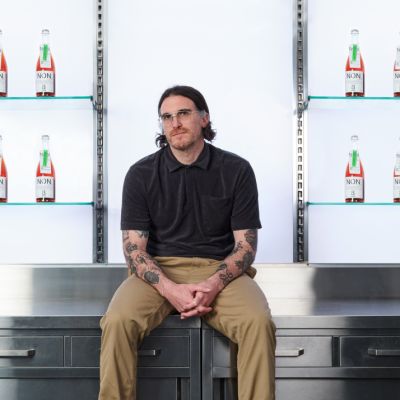Melbourne label Suku grows from bedsheets to homewares kingdom
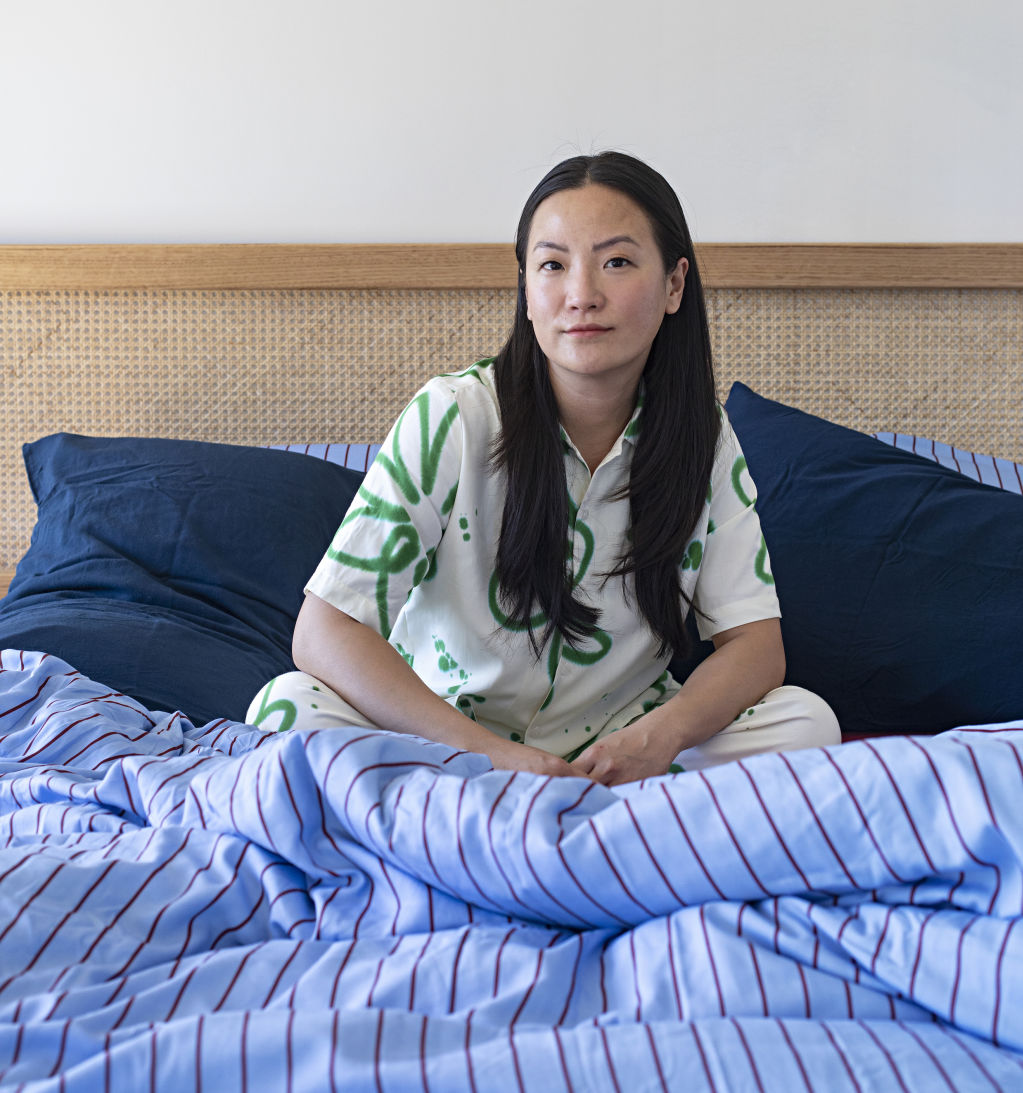
Making your bed has never been easier. No matter your taste, price point or fabric preference, stylish Australian-designed sheets now abound – particularly if you’re shopping online. Things were different a decade ago.
In 2013, Christine Lafian was in her mid-twenties and sleeping on “whatever Ikea had”. She dreamt of bedding that had personality: “something fun, affordable and good quality”. When she couldn’t find it, she made her own, christening her label Suku.
What began with four different ombre bedding sets is now a small kingdom of homewares, fashion and lifestyle goods. From the get-go, Lafian created an unmistakable Suku look – a combination of bamboo fabric, rich hues and graphic prints applied with an artisanal touch. The brand name, which means “tribe” in Indonesian, came about rather serendipitously when Lafian heard a radio announcer mention the French musician Soko and was so taken, she decided to adapt it to her liking. But it’s become an apt descriptor for Suku’s loyal fanbase of creatively inclined millennials.
Even if you don’t have an interest in Melbourne’s independent design scene, you’ve likely already glimpsed Suku pyjamas out on the street. The label’s slinky, oversized sets are a summer leisurewear favourite, not only for their comfort, but also because they exude a “luxuriating in the tropics” vibe, rather than “ready for bed”.

Like many successful small business stories, there was never a grand plan for Suku. Lafian, born in Makassar, Indonesia, moved to Auckland at age 15 for high school, before relocating to Melbourne to study graphic design. “My only goal in my twenties was to live in Australia,” she explains. “I was working retail so I could stay here, and just felt like doing something else as a hobby. I wasn’t thinking Suku would produce lots of money or even fund my life! It was just a product that answered my needs.”
When bedding was dominated by either serious, crisp cottons or matronly Laura Ashley florals, Lafian’s electrifying prints stood out. Word spread thanks to friends first, then coverage from taste-making local press. “When more and more people starting DM-ing me and asking to buy, that’s when I found my confidence,” she says. “It grew organically into something bigger.”
Lafian built Suku as an e-commerce business initially, and didn’t leave her day job at Zimmermann until three years in when she was offered a bricks-and-mortar space at the now-shuttered No Order Market boutique on Elizabeth Street in the CBD.
Working with Indonesian craftspeople and showcasing traditional techniques was always a priority for Lafian. “It’s where I’m from,” she says. “Even though I live here in Australia, I want that connection to back home. So if I work with Indonesia, home will always be close to me.”
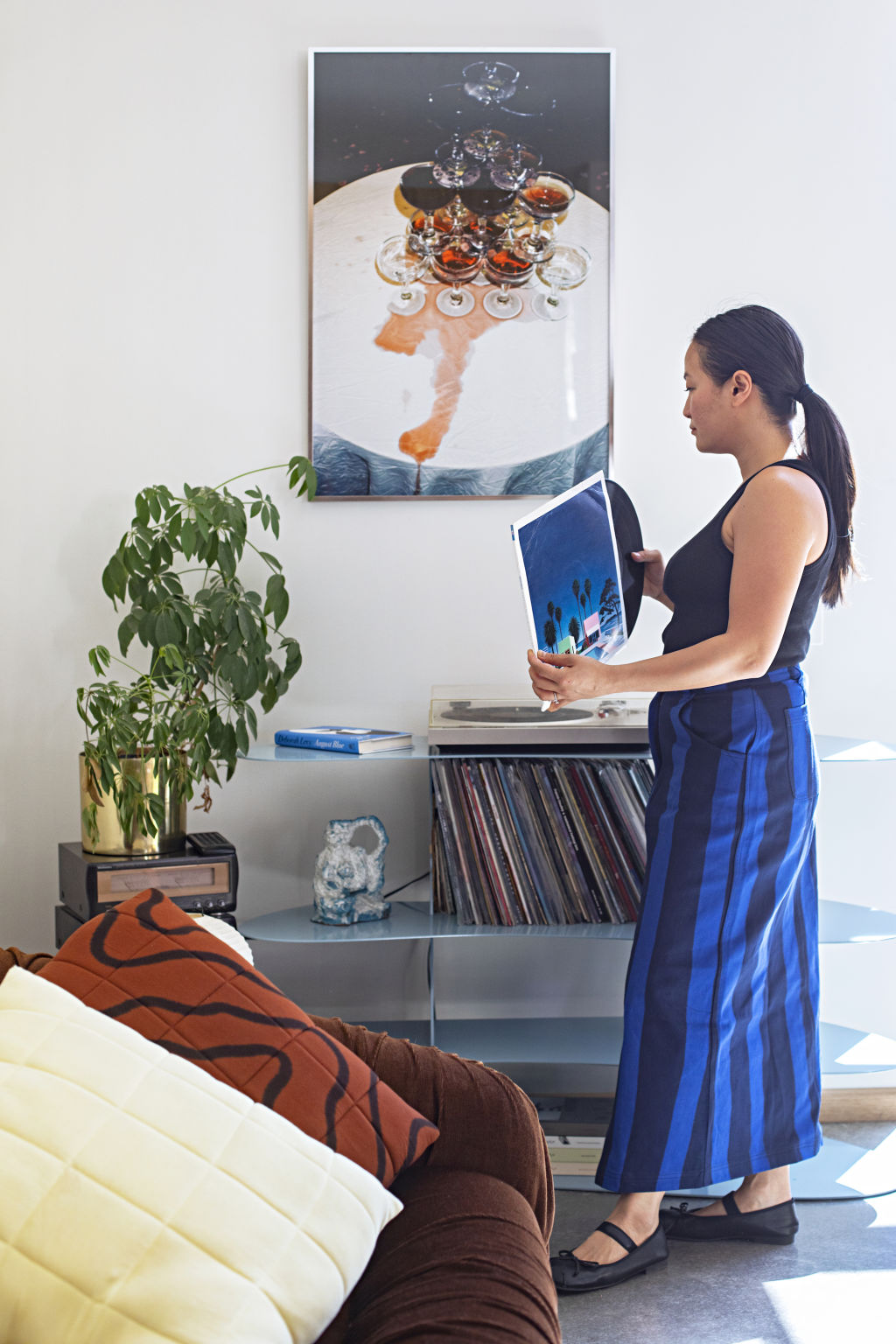
Her original plan had been to create cotton sheets – the kind you might find in a nice hotel. But it was her grandma in Bali who swayed her towards velvety bamboo. “She helped me out a lot with Suku,” Lafian says. “She has a small garment manufacturing business, and before that, she had a bed and breakfast in Kuta, so her background has always been in surfacing and leisure. She was the one who told me to use bamboo. She sent me a sample to try and I was like, ‘Wow, this is incredible.’”
Lafian and her then-housemates all pitched in as the first product testers. Those closest to her would also help cement the nascent Suku aesthetic: a dreamy, lived-in look that broke away from the meticulously styled set-ups typical of bedding companies. Photos from the label’s first six years, shot on film by Charlie Brophy, show bare-faced models bathed in natural light, peeking out from between the covers or sipping coffee in the brand’s robes. To any 20-something who’d just started making enough money to splurge on nice bedding, Suku felt both gloriously luxurious and within reach.
Suku still speaks to a similar audience today, though Lafian has naturally evolved her vision into something bolder and a bit glossier. In 2021, she opened a flagship store on Gertrude Street, Fitzroy, which also now houses a fully fledged fashion line. Garments and bedding are the biggest sellers, she says. Surprisingly, it’s the Moon print from 2016 – tie-dyed white circles on inky black – that Lafian keeps on rotation due to popular demand. “I don’t know why, but people are still buying it!”
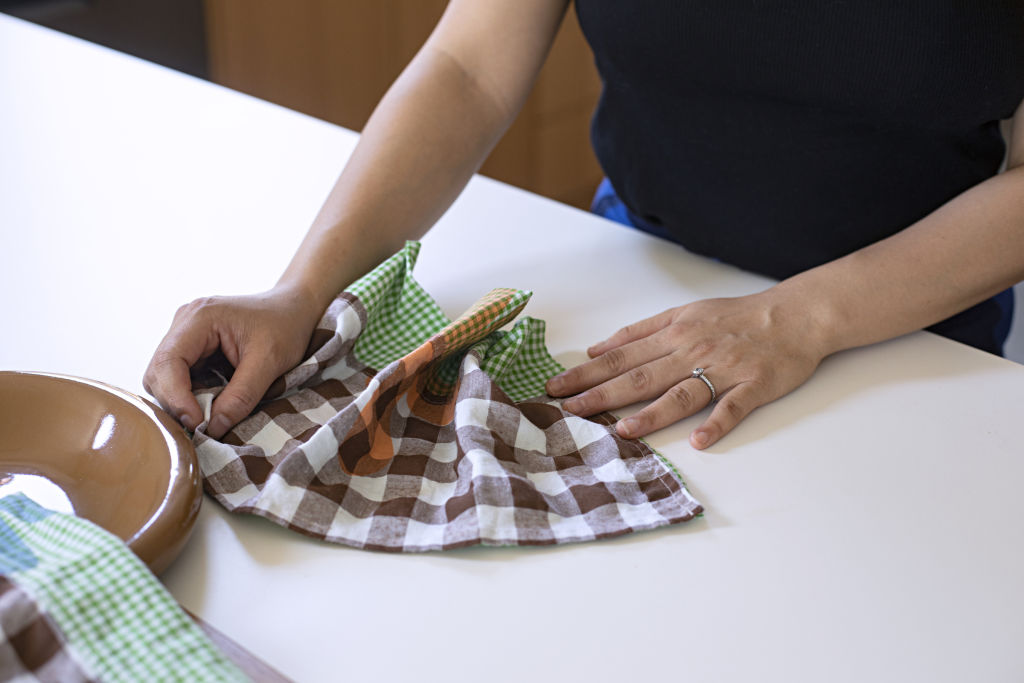
Over the years, the team has slowly expanded behind the scenes. Lafian leads as creative director, designing all the brand’s prints, but also employs eight staff across Melbourne and Bali who look after retail and the technical aspects of design, as well as 25 production staff in the Bali workshop. Still, you get the sense that Suku’s universe remains a reflection of what Lafian is personally digging at any given moment – whether it’s pet wear, swimwear, tableware or incense.
“The way I do things is still the same – I like to design for myself,” she says. “I look at Melbourne when designing winter clothes and Bali for summer. When I’m working on something, I just ask myself, ‘What do you want to buy next?’ Because if I want it, other people might too.”
Lafian chuckles, questioning whether the line of thinking is conceited. But clearly, the formula works. “I guess because I created the brand from my own aesthetic and personal style from the beginning,” she muses. To her, staying ahead of the curve means being faithful to the origins of her brand. She’s felt the temptation to give into trends – like when neutral linens were all the rage – but ultimately believes in “what we do best: bold and colourful prints”.
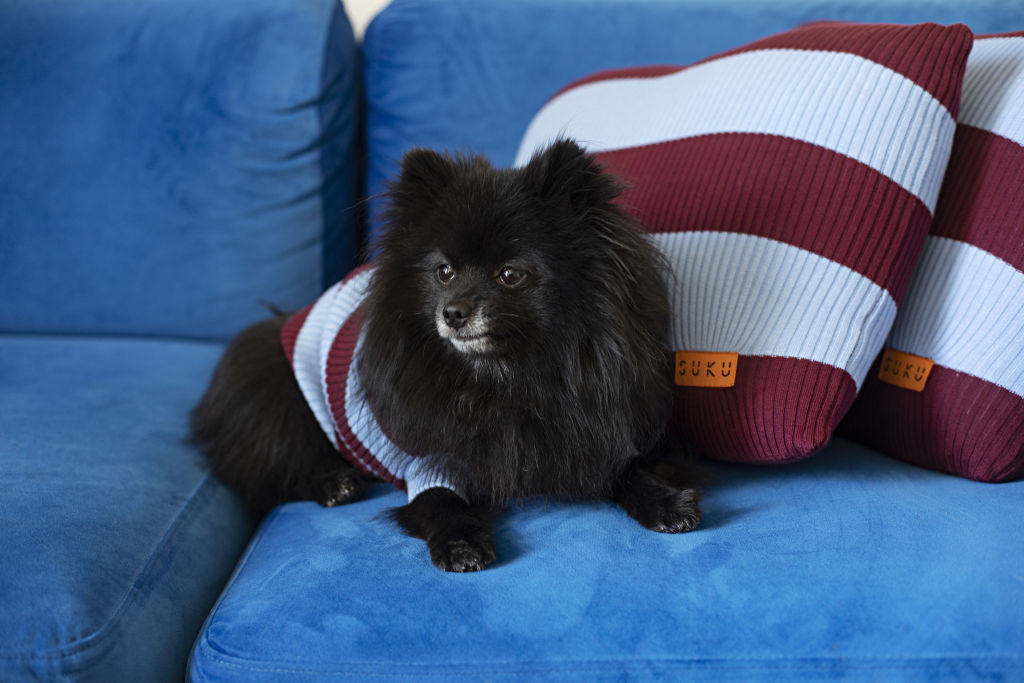
Suku’s production – the dyeing, printing, cutting and sewing – has always happened in Bali, where Lafian’s grandmother continues to manage the workshop. The operation remains small-scale and focused on handmade processes including batik and dip dyeing (you’ll notice painterly brushstrokes and splatters of ink flicked by hand on the final product).
Producing in Bali felt easy for Lafian, not just due to familial help, but because she never had to overcome language or cultural barriers, which she saw other Australian-based brands struggle with. “Bali people are so sweet, but they may say yes to jobs that they don’t understand completely,” she notes. “So a lot of my friends who manufactured there got frustrated when they got a different type of sample back. Miscommunication and cultural expectations can really get to you.”
Since 2020, Lafian has manufactured Suku’s bamboo fabric in Java using a custom weft and weave. Previously, she sourced the textile from China, one of the world’s main suppliers. “I thought, what’s the point of importing so many fabrics, then importing it again into another country? When I found a factory in Indonesia, I asked them to tweak it to make it feel a bit like cotton, because sometimes bamboo can get real silky. Now we can proudly say that we manufacture our own fabric!”
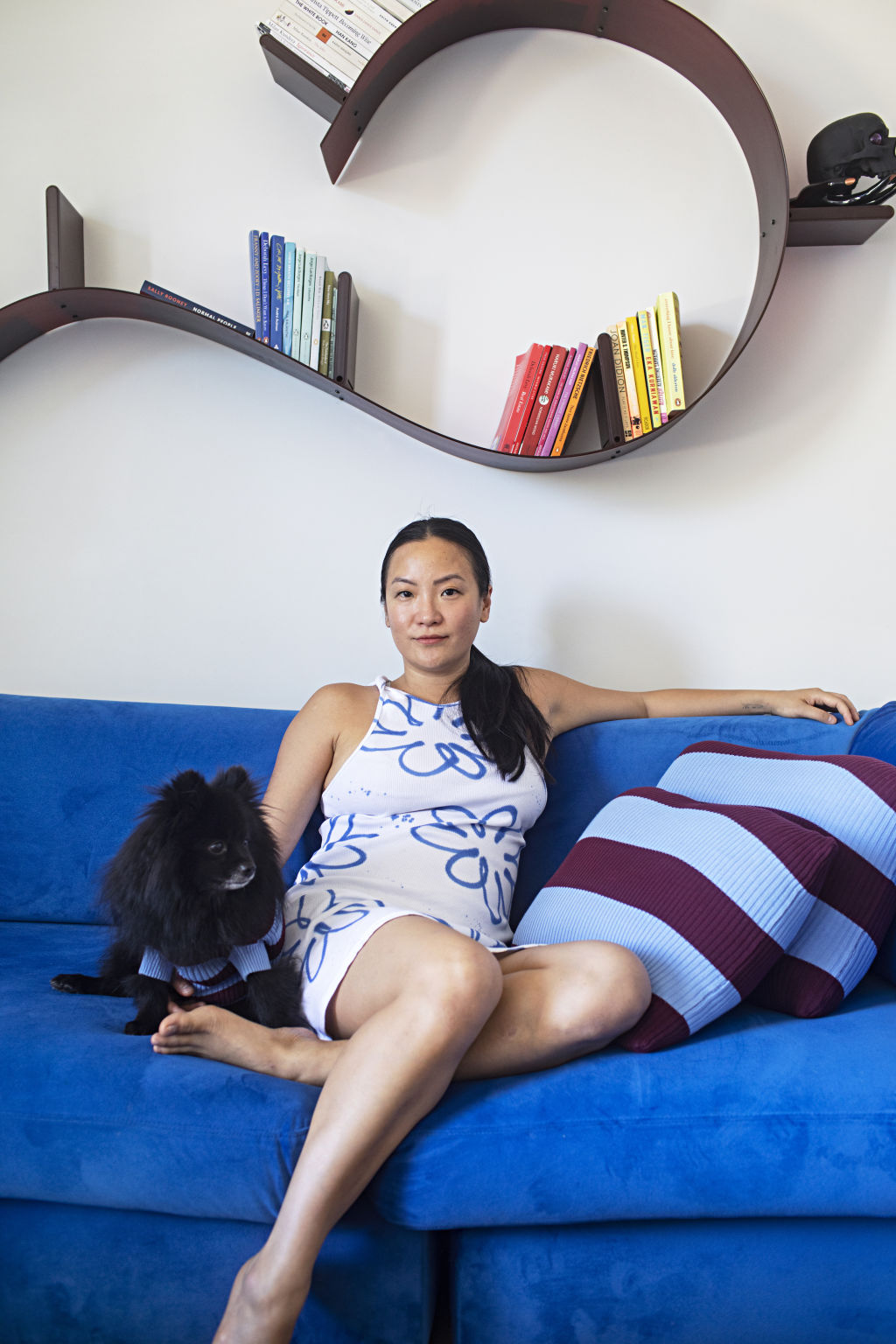
Reflecting on 10 years of Suku, Lafian is simply grateful to have made it this far. She’s content with the size of the business, pleased that the team still love what they do. “This is an industry where people get bored and want new things all the time,” she says. “So my biggest achievement is that we still exist.” She attributes the label’s longevity to her grandma’s advice. “It’s more of a mantra – if I’m too stressed, my grandma’s like, ‘What’s the point of doing it if you’re not having fun?’”
To Lafian, the ultimate business success would look something like the restaurant Noma – a brand that is “so powerful, the community will understand you and follow you whatever you do”. But today she’s simply embracing the lessons of parenthood: slow down, take things as they come. Giving birth to her son Enzo last year forced Lafian to examine her all-consuming relationship with work.
“I think it’s healthier now – I don’t talk about work as much anymore, I just talk about my baby,” she jokes. “But it’s really just given me a different perspective – at the end of the day, your life is not your work. It’s pulled me back and made me see what’s important.”
This article first appeared in Domain Review, in partnership with Broadsheet.
We recommend
We thought you might like
States
Capital Cities
Capital Cities - Rentals
Popular Areas
Allhomes
More
